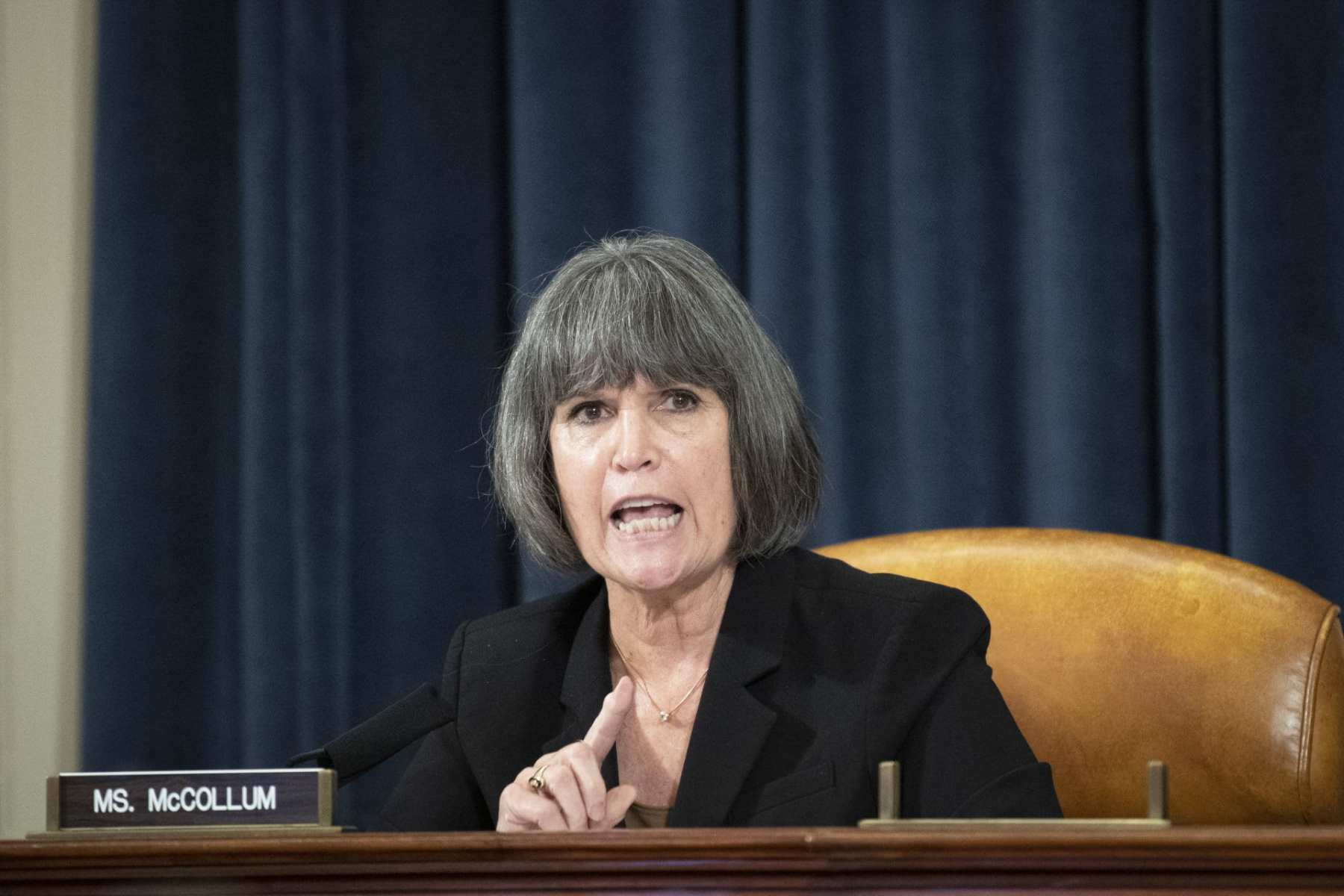About one month after pro-Trump rioters stormed the U.S. Capitol, The 19th reached out to all 143 women in the 117th Congress to ask about their experiences on January 6. Twenty-three shared their points of view from that day. We are also publishing each lawmaker’s full account of that day. Here is what Rep. Betty McCollum of Minnesota told The 19th. The transcript has been lightly edited:
I live over by the Hart building when I’m in D.C. When I walked to work that morning, I decided to stop by Starbucks on my way in. There were large groups heading toward the Capitol, and I was kind of surprised because I thought more people would be going toward the White House. There were different age groups. You could tell some people were there because they were Trump supporters or just angry about things.
Later on in the day, I was in my office in the Rayburn building. I could hear a lot of noise and crowds assembling. At one point, it sounded like there was some kind of discharge — not a gun — but like someone had dropped a bag of cement.
I was in my office with my legislative director and a new fellow. We were watching things get more raucous on the television, as the large crowd began pushing against the hip-high police barriers. I told my fellow to grab her laptop so I could walk her through the tunnel to leave. I didn’t want her near that crowd. We were just a minute away from the exit when a police officer stopped us and closed the door. The Capitol was moments from being breached. We were told we couldn’t go back to my office building, so we went to the 7th floor, found an office with a staffer and locked the door behind us.
We turned off the lights and made sure that it didn’t look like anyone was in the office. Then we went into an inner room and watched it unfold on screen. I was heartsick. If my fellow wasn’t with me, I’d probably be sitting in the gallery. I was really fearful that we would have had more loss of life at the end of the day than we did.
Here’s my take on it.
I was here on September 11. We had poor communication, so after we came up with these protocols: an announcer who would tell you what’s going on, what’s safe, what’s happening. So I had an old-fashioned pager with me and a cell phone, but there was no information coming out about what to do or what was safe. There was no real-time communication because the network for doing that was in the Capitol. All these redundancies. We never really planned for the worst case scenario: an attack on one of our buildings or on our Capitol. That was a huge gaping hole.
Nobody knew what was going on.
The people in the balcony, the people on the floor and I didn’t know what was going on, but I knew I had colleagues in harm’s way. Finally, when we got the all clear, I walked back to the office with my fellow. I stayed in one office overnight. We raided some vending machines for food.
There was a lack of shared intelligence and a lack of leadership in preventing this from getting so out of control — decisions that were made up to a few people. To my colleagues who are suffering from PTSD, my heart just breaks for them. For my colleagues who got COVID, I’m furious. Some of my colleagues must think this is a joke or a walk in the park or not very serious because they just want us to move along.
We’ve had two suicides in the Capitol Police, one death and members dealing with traumatic stress. That’s something that doesn’t go away. I’m still coping with it. September 11 was a really different attack and the anthrax attacks weren’t good, but to have your own citizens outside chanting that they want to kill members and have the vice president hanged — it’s just unimaginable.
My story is different than most of the others that you’ve heard from. During 9/11, none of the cell phones worked because the grid got locked up. My sister knew I was OK when she was at the dentist and heard me on the radio stations. I made sure to let my brother, sister, daughter, nieces, nephews and constituents know that I’m safe. I’m fine. We’re not going to tolerate this. We’re going to get to the bottom of this and hold people accountable.
I knew we were physically okay, but emotionally it was devastating and heartbreaking — not knowing how many people were hurt. Later, I talked to staff members from Speaker Pelosi’s office. They had glass smashed, mirrors broken and did everything that they could to be safe.
Time meant nothing until we got the “all clear.” We stayed overnight in our office because we didn’t want to walk outside in the dark, not knowing what was going on. The Capitol Police were busy, and there was no one to escort us. At about 7 or 8 a.m. the next the morning, we left.






